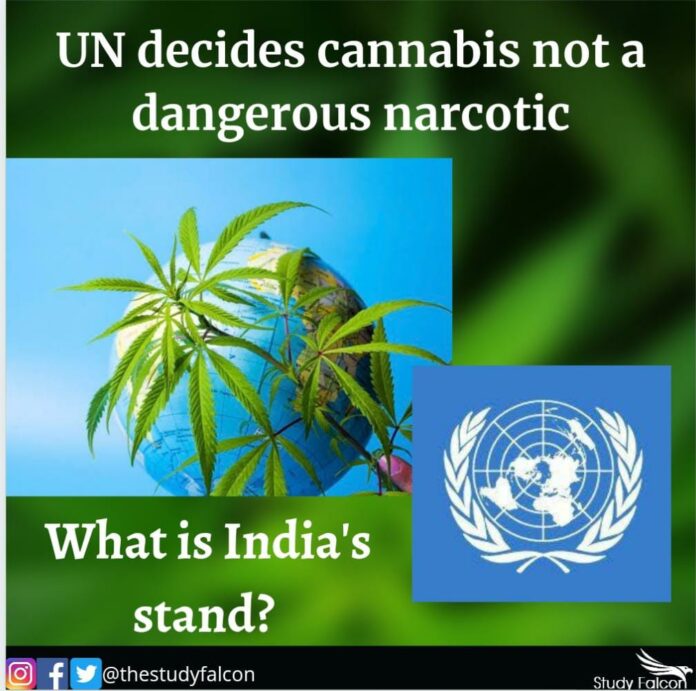UN Commission on Narcotic Drugs (CND) in its ongoing 63rd session held a voting to remove cannabis and cannabis resin from the list of most dangerous substances in the flagship international Convention on narcotic drugs.
CND decided to remove cannabis from Schedule IV of the 1961 Single Convention on Narcotic Drugs where it was listed alongside deadly, addictive opioids, including heroin. Cannabis has been subjected to strict regulation, ban in various countries even for medicinal use.
The session is being chaired by Mansoor Ahmad Khan, Pakistan’s ambassador to Afghanistan. During the voting session, 27 of the CND’s 53 Member States — including India, the United States and most European nations — voted “Yes” on the motion to delete cannabis and cannabis resin from Schedule IV of the 1961 Convention. Whereas 25 countries, including China, Pakistan, and Russia, voted “No”, and there was one abstention – Ukraine.
This removal of cannabis from the list would not come into immediate effect. As legal status of cannabis resides in the hands of the countries, it won’t be applicable if the countries stick to their previous cannabis regulation policy.
Like in India, even though India voted a ‘Yes’ for the removal of cannabis from the list of illicit drugs. By law, use of this drug is still prohibited. Under India’s Narcotic Drugs and Psychotropic Substances (NDPS) Act, 1985, the production, manufacture, possession, sale, purchase, transport, and use of cannabis is a punishable offence. Charas, defined as “the separated resin, in whatever form, whether crude or purified, obtained from the cannabis plant”, is also covered by the NDPS Act.
Narcotics Control Bureau (NCB) has arrested many people for acquiring and supplying drugs, especially cannabis.
The WHO says that cannabis is by far the most widely cultivated, trafficked and abused illicit drug in the world. The Vienna-based CND, founded in 1946, is the UN agency mandated to decide on the scope of control of substances by placing them in the schedules of global drug control conventions.
Global attitudes towards cannabis have changed dramatically since the commencement of the 1961 Convention, with many jurisdictions permitting cannabis use for recreation, medication or both. Currently, over 50 countries allow medicinal cannabis programmes, and its recreational use has been legalised in Canada, Uruguay and 15 US states, the UN said.










